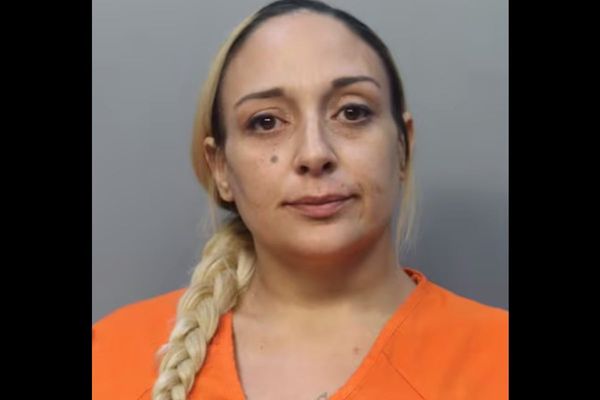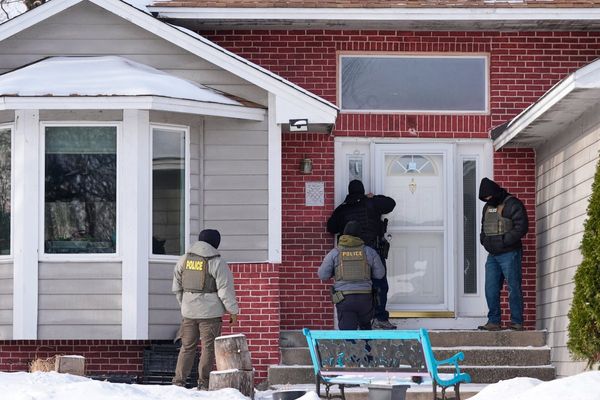About 10 months ago as the pandemic was raging across Australia, Charli wasn't sure she would make it through another day, feeling she was being overwhelmed by her eating disorder.
"My health was at risk, I was quite suicidal at the time, I did not want to live at all, and I wasn't eating," the 19-year-old said.
Charli was diagnosed with anorexia nervosa five years ago and has spent more than 500 days in hospital since.
She is one of one million Australians living with an eating disorder – an illness that has nearly doubled in WA during the COVID-19 pandemic.
The situation is mirrored across Australia, with a number of eating disorder organisations reporting an increase in demand for their services during the pandemic.
Charli said she could see why COVID had a detrimental effect on eating disorder sufferers.
"For some people, the isolation at home could have them stuck because eating disorders do like routine and it is hard to break routine," Charli said.
"Being at home with your own processes and thoughts could be quite harmful for some and may have contributed to eating disorders getting worse."
Eating disorders skyrocket amid COVID
WA Health Department statistics show 1,399 Western Australians were treated via the public health system for eating disorders in the 2020 financial year, compared to 1,051 in 2018/2019.
WA Health Minister Amber-Jade Sanderson said in parliament there had been a 48 per cent increase in referrals to Perth Children's Hospital between 2019 and 2020.
She said the hospital had also experienced a 42 per cent increase in bed days for patients with an eating disorder in that same period.
The Butterfly Foundation National Helpline, a support service for people with eating disorders, had reported a 63 per cent increase in contacts made between July and August in 2021, compared to the same period in 2019.
A recent study published in the Journal of Eating Disorders found several pandemic experiences were associated with this increase, including changes to daily routine, social media reactions, restricted access to support people and changes to treatment.
Susan Byrne is the clinical director and psychologist at the Swan Centre in Perth's west, an outpatient clinic that provides specialist treatment for eating disorders and body image concerns.
She said COVID-19 had exacerbated mental health issues.
"There was always the collective trauma of the pandemic [but] if somebody with an eating disorder can't go out and do their normal routine or their normal exercise, they might tend to react by restricting their intake even further for fear of gaining weight over that time period," she said.
"We haven't had lockdowns like the eastern states but I feel like maybe for many people, [it is] a time when they feel like there is a bit of chaos in the world and things are sort of out of their control."
Ms Byrne said the pandemic may have presented a period where people tried to exert more control over something they felt they could control, which could be their eating, their exercise, their fitness or their appearance.
"I think for young people in particular, there was a bit of a focus on using this time to better yourself and make yourself as fit as you can be and improving your fitness and the COVID glow sort of thing," she said.
She was getting up to 20 new referrals a week at the Swan centre since the beginning of the pandemic, and the situation was not abating.
"Our waitlist is months … and there are definitely really long waitlists at other services."
Treatment a two-hour drive away
These days Charli Williams spends all her free time in her workshop, making wooden signs for her small business.
But the 19-year-old has been on a long road toward recovery.
She has sought help for her eating disorder for years, travelling two hours from Boddington, in WA's south-west, to Perth for treatment.
"By the time we had sought treatment, it was quite late [and] probably quite irreversible," she said.
She had been admitted to Perth Children's Hospital (PCH) about 20 times in what she described as a "hugely traumatic" experience.
After being discharged at 16 years old, she resorted back to obsessive exercise and had to be taken to Fiona Stanley Hospital, being considered an 'adult' and too old for treatment at the children's hospital.
"I was in and out of Fiona Stanley, which was terrifying for me as a 17-year-old being in an adult hospital, which I'd never been in before … it was not working."
GPs from the Peel Health Hub in Mandurah have struggling to cope with the demand for eating dirorder help, in common with other parts of regional Western Australia.
"I know one of our female GPs probably has 25 or 30 eating disorder clients that she's managing, in conjunction with the psychologists or counsellors and the clinical care coordinators in the building," the health hub's Eleanor Britton said.
"It's a really tough workload and very complex cases."
Ms Britton said early intervention and prevention through specialised services should be the focal point for treatment.
"We're usually looking at medical intervention, but it's the wrong end of the spectrum," she said.
In February 2019, former Health Minister Greg Hunt pledged $4 million to establish a residential eating disorder treatment centre at the Peel Health Campus.
But WA's Health Minister Amber-Jade Sanderson said the centre was a "Liberal-National coalition election commitment" that didn't meet the needs of West Australians.
State-wide, the WA government has earmarked $31.7 million over four years to expand eating disorder treatment programs, including in regional communities.
The services are expected to begin this financial year, if staff can be recruited.
Ms Britton said regardless of whether the project the former federal government proposed went ahead, a dedicated service was desperately needed in the area.
"People in this community actually deserve to have that … they shouldn't be having to travel to Perth for these treatments and waiting for many months," she said.
Charli finds help on the east coast
After exhausting all options, Charli's family turned to interstate treatment for hope.
"There came a point last year when we didn't think Charli was going to be around any longer … she was at rock bottom, there was nowhere in WA that could help her," her mother Michelle Williams said.
Last year, Charli was accepted into Wandi Nerida on the Sunshine Coast in Queensland, Australia's first residential recovery centre for people affected by an eating disorder.
She described her three months in the program as "life-changing".
"The program and model of treatment is outstanding and demonstrated that treatment can look so much different to how it does elsewhere as an inpatient," she said.
"There were no nasal gastric tubes, no sort of threat to have a tube put in if you weren't complying so there was no fear around that … the support was great.
"What I learned there, it's helping me get through … and unlike other treatment that I did have in the past, I've taken away some great learnings."
Charli has now turned her hobby of woodwork into a small business, making and selling customised wooden signs across WA and interstate.
Ms Williams said it was beautiful to see her daughter "starting to live a little bit of life".
"I have no doubt if Charlie didn't go to Nerida, I don't think she would be here today," she said.
"She's missed out on nearly five years and had no life at all, and to see her now starting to come out of her shell … her woodwork is her saving grace, and she just loves what she does."







